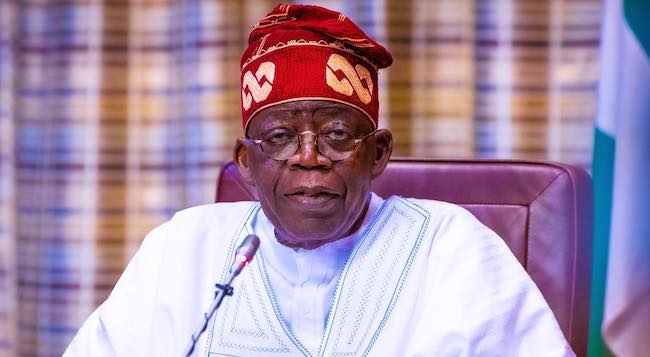In a groundbreaking development aimed at alleviating poverty and empowering vulnerable citizens, President Bola Tinubu has revealed plans to provide financial assistance to 12 million Nigerian families for a period of six months.

The announcement came in the form of a letter addressed to the National Assembly, highlighting the Buhari administration’s intention to secure an $800 million loan for the national social safety net program.
President Tinubu has sought the approval of the House for the loan, emphasizing the significant impact it would have on the lives of approximately 60 million individuals.
The funds will be channeled toward expanding the existing social safety net program, ensuring wider coverage and support for those in need. To facilitate this, the loan will be obtained from the World Bank, a move aimed at bolstering the credibility and transparency of the initiative.
According to the President’s letter, the cash transfers will be disbursed directly to the beneficiaries accounts and mobile wallets, leveraging digital payment systems to ensure efficiency and prevent leakages. This digital approach not only enhances transparency but also enables swift and secure transfers, reaching the intended recipients promptly.
“The federal executive council led by President Muhammadu Buhari approved an additional loan facility to the tune of $800 million to be secured from the World Bank for the National Social Safety Net program,” the letter stated.
“The purpose of the facility is to expand coverage of shock-responsive safety net support among the poor and vulnerable Nigerians. This will assist them in coping with basic needs.”
“You may further wish to note that under the conditional cash transfer window of the program, the federal government of Nigeria will transfer the sum of N8,000 per month to 12 million poor and low-income households for a period of six months, with a multiplier effect on about 60 million individuals.
“In order to guarantee the credibility of the process, digital transfers will be made directly to beneficiaries’ accounts and mobile wallets.
President Tinubu also stressed the broader socio-economic benefits of the program. By injecting financial support into vulnerable households, the initiative is expected to stimulate economic activities in the informal sector. Furthermore, the program aims to improve nutrition, health, education, and overall human capital development within the beneficiary households.





Comments are closed.